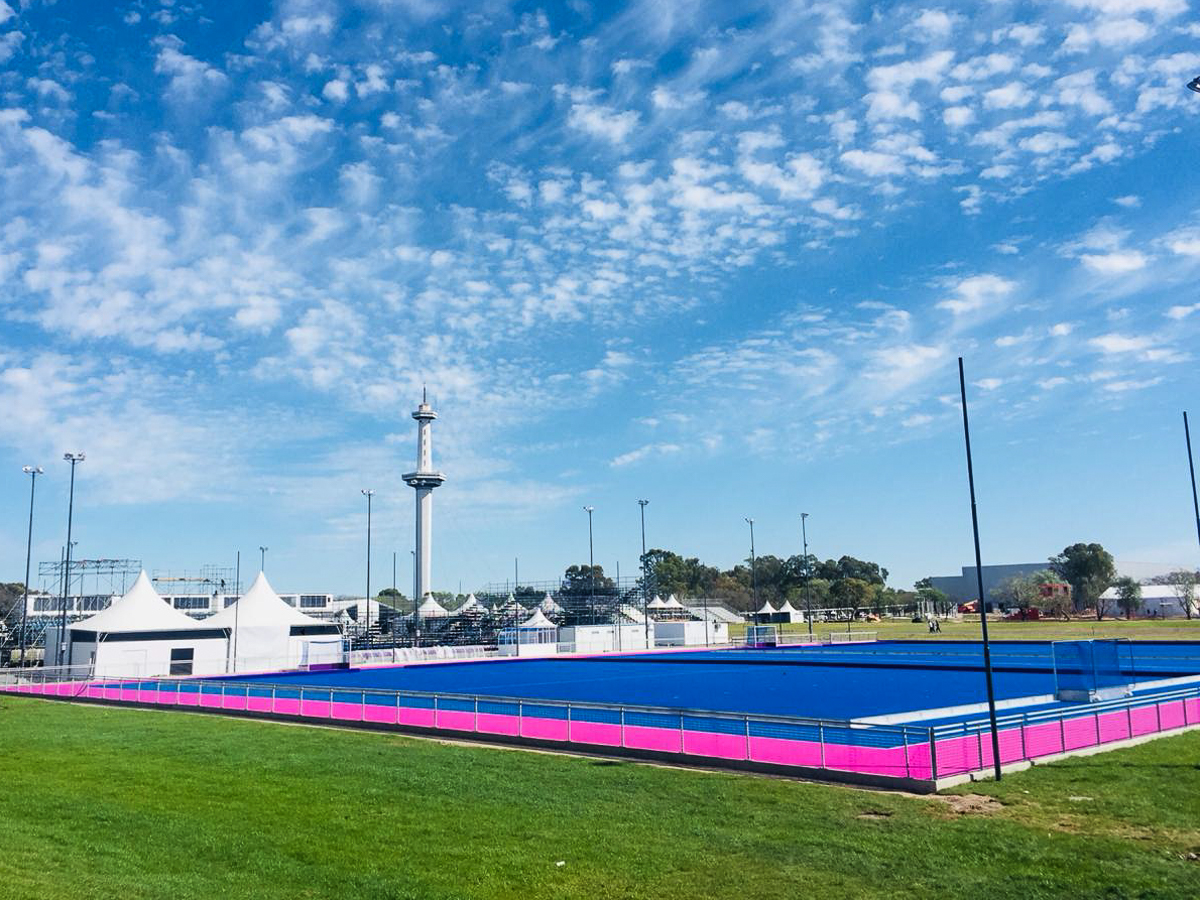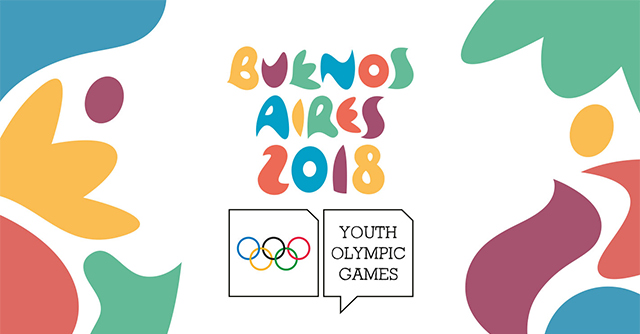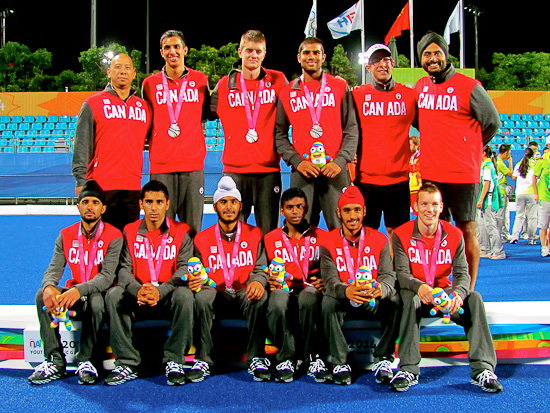
PAHF athletes from Argentina, Canada, Uruguay and Mexico will be competing in the third Youth Olympics in Buenos Aires from 7-14 October.
The Games, which were first held in 2010 in Singapore, are the perfect platform for young athletes as they make the transition from talented youngster to elite performers. The opportunity to compete in a huge international competition provides all the experience and stress associated with elite performance but at an intensity suitable for their age.
Argentina gold medal winner Matías Paredes is one of two hockey players who have been selected as Athlete Role Models at the Buenos Aires YOG. He says one of the most important things is for the young hockey players to enjoy the occasion. “The players should enjoy all the incredible experiences that they will encounter. Enjoy the event from the cultural, social and sporting point of view. As Argentines, especially, we are fanatical about sports, and at this event, on home soil, the support will be amazing. So the stadiums will be full, very noisy and very supportive, so the young athletes should enjoy the atmosphere and perform to their best.”
The competition is a perfect opportunity for the players to experience different styles of hockey from around the world. All the continents are represented at the event, so players will be able to pit their wits against the highly skilled and disciplined Asian teams, the physical and hard-running African and Oceania competitors and the tactically astute sides of Europe.
As the 288 athletes and their coaching staff line up for the opening ceremony of the third Youth Olympic Games (YOG) in Buenos Aires on the 6 October there will be a plethora of mixed emotions spiralling around the minds of the young hockey stars.
Nerves – definitely; excitement – undoubtedly; anticipation – probably; fear – most likely. One hockey player who has faced all those emotions over her long and successful career is gold medallist and four times Olympian Helen Richardson-Walsh. She joins Paredes as an Athlete Role Model and both players will be on hand during the event to offer words of support to the players.
“When we were training for the Sydney 2000 Olympics, we were all handed a red folder with tactics and such like in it,” says Richardson-Walsh. “Within the folder was a quote that I cut out and stuck on the front of the folder and it remains as relevant today as it did back then – ‘feel the fear and do it anyway’, That’s a perfect piece of advice. Everyone will feel afraid at some point, that is normal. Just don’t let it stop you.”
Both Paredes and Richardson-Walsh have been elite internationals for more than 17 years and have a lot of empathy with the young players as they face their biggest competition to date.
“Whatever your age, It is not easy to combine everything as an elite athlete,” says Paredes. “We set out on this route to an international career but as we get closer to our dreams, those aspirations take us away from our families, our time with friends, they impact our study hours. It is important to get balance. We can do that by setting clear goals and staying strong as we pursue them, even in difficult times.”
And Richardson-Walsh makes the point that, on the eve of a big event, there is a temptation to change processes or do things a little differently. Her advice to both coaches and players is simple: stick to your usual routine.
“There is always a temptation to change things at a big event,” says the midfielder. “You really shouldn’t. Whether you are the coach or a player, trust in the processes you have followed so far. The minute you start changing things, then you make people uncomfortable. In a competition environment, you need to know exactly what you are doing.”
She also emphasises the importance of preparation. “Don’t have a last minute panic. Make lists, think about what you might need – spare trainers, extra protein bars, things that you might not be able to get while you are at an event. People go to an event like the Youth Olympic Games and think everything will be perfect. You quickly learn that is not always the case. You need to get into the habit of planning down to the finest detail.”
And that is one of the strongest messages that the Olympic gold medallist would pass on to the youngsters in Buenos Aires. “This is all part of learning. You will make mistakes and you will learn what works and what doesn’t. But there is nothing to get stressed about, you are starting out on a career and learning is all part of that process.”
The PAHF countries have a consistent, if not outstanding record at the Youth Olympic Games.
Canada took a silver medal at the 2014 Games in Nanjing, when they lost to Australia in a dramatic shoot-out. The Canadian team finished third in their pool after beating South Africa and Bangladesh. They then performed heroics in the knock-out stages as they beat Pakistan on shoot-out – the score at full-time had been a competitive 7-7. They then showed the same nerves of steel to beat Spain in shoot-out after the semi-final match had finished 4-4. The Canada team’s shoot-out luck ran out against the reigning champions Australia. The score was 3-3 at full-time but the Australian side were clinical in the shoot-out, winning 3-2.
In the women’s competition, Argentina have flown the flag for PAHF, winning silver in 2010 and bronze in 2014. In 2010 it was the Netherlands who scuppered Las Leona’s hopes for a gold medal. The match was drawn 1-1 at full-time, with Augustina Albertario scoring the Argentina goal, but in extra time Lieke van Wijk scored the winning goal to secure gold for the Netherlands.
Four years later and it was again the Netherlands who were the curse of Argentina. This time the two teams met in the semi-final stage and the European team won by a convincing 4-2 scoreline. Argentina then beat Japan 5-2 to take bronze. Julieta Jankunas was the hero with a hat trick of goals in the match.
At the 2018 edition of the women’s event, Argentina and tournament debutants Uruguay are competing in Pool A, where they will face Austria, India, South Africa and another debutant side – Vanuatu. Mexico will be facing the challenge posed by Australia, China, Namibia, Poland and Zimbabwe in Pool B.
The men’s competition sees Argentina and Mexico in Pool A, alongside Malaysia, Poland, Vanuatu and Zambia. In Pool B Canada have the unenviable task of overcoming the reigning champions Australia, as well as Austria, Bangladesh, India and Kenya.
To all the young players setting out on this exciting journey into international hockey competition, Matias Paredes has this advice: “Train, train, train... it is the only way to ensure that they will be able to enjoy and show the best version of themselves. At the YOG, the result is not the most important thing, but the focus must be placed on the experience that this type of event leaves us for the future.”


